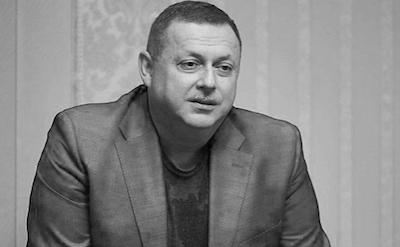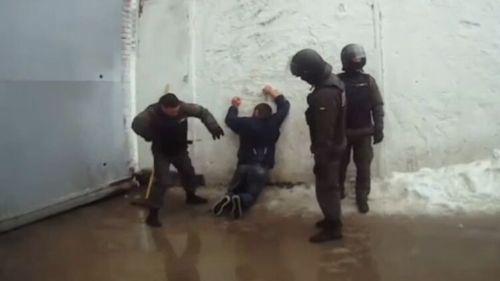The torture scandal in the Ukrainian colonies has broken out with renewed vigor.
The State Bureau of Investigation announced the exposure of a large-scale system of torture of prisoners. Cruel footage of beatings of prisoners was also published.
Both ordinary prisoners and famous people are subjected to physical and moral humiliation.
In some cases, sophisticated bullying leads to the death of people in custody – a topic that Strana raised back in October, when the owner of the MHP media holding, Igor Mizrakh, died in prison.
What is known about torture and what consequences mass acts of violence while prisoners may have for Ukraine can be found in our material. New torture scandal
This week, the State Bureau of Investigation announced the exposure of torture of prisoners in colonies in a number of regions of Ukraine, which was systemic in nature.
Four employees of the Bozhkovskaya correctional colony (No. 16), which is located in the Poltava region, received suspicions.
According to the investigation, almost all prisoners there were severely beaten. Possible deaths from this are being checked.
Various systems of torture, bullying and pressure were used.
“The new arrivals were threatened with settlement among the “rejected as a whole” prisoners and beaten until they broke their will and were forced to unquestioningly follow any instructions,” the SBI reports.
The beatings were filmed and are now included in the case.
The footage is truly brutal. A strong man can be seen hitting the prisoner's feet with all his might with a rubber baton.
It is obvious that the prisoner is already exhausted, but the man does not stop and continues the torture.
When the prisoner completely loses consciousness, the men in uniform standing nearby forcefully drag him into a huge ice puddle – they throw him there face-first.
The acquisition by prison staff of numerous assets for which they had no official funds is also being investigated.

It subsequently turned out that traces of serious bodily injuries were found on the body of the deceased, which he received while in the pre-trial detention center. According to doctors, he died from these injuries.
This case received resonance, the media wrote about it.
However, much more murders, beatings, and tortures in Ukrainian prisons occur without publicity and are covered up by all means.
How and why torture occurs in Ukrainian prisons
Strana's sources among prisoners spoke in detail about in which zones torture occurs, who uses it against prisoners, and why some of them are filmed.
This is the so-called “acceptance” – a system of subordination, which, as a rule, is used in “red zones” – in colonies that are completely controlled by the administration. Bozhkovskaya IK No. 16 has always been considered a “red” colony.
“Acceptance” applies to prisoners arriving for the first time in the “red” zone. This happens immediately after the arrival at the stage is quarantined, where he must spend several days.
The newcomer is informed that the zone is “red” and he must fully comply with all the requirements of the administration and the activists (prisoners collaborating with the administration).
The requirements include not only complete obedience and the obligation to comply with the rules of the colony regime.
“In almost all “red” zones they immediately offer to donate half of the salary they will receive while working in the zone for the “needs” of the colony. Naturally, the “needs of the colony” are the pocket of the owner and godfather of the zone (the head of the correctional colony and his deputy for operational work – Ed.),” say our sources among prisoners.
But the requirement to give half of their salary applies to ordinary workers.
“It’s much more interesting if a “fat crucian carp” — a former businessman or official — gets into the zone, he is required to make monthly transfers from relatives for “needs,” which can vary from a thousand to ten thousand dollars a month, depending on the wealth of the “crucian carp.” This is the main income for the management of most red zones – we are talking about hundreds of thousands of hryvnias of income per month,” the interlocutors note.
Not everyone who arrives at the colony, according to prisoners, immediately agrees to blackmail. And in such cases, torture is applied to those who are finished.
In addition, prisoners are often beaten for various, from the point of view of the administration, offenses. This is considered one of the ways to keep the contingent of convicts in obedience.
In addition to ordinary prisoners, prisoners of the “thieves” categories – in prison slang, “suits” – are often sent to the “red” colonies. They are also tortured.
“First of all, they break the “thieves” and “deniers” who comply with the “human movement” (thieves’ prison rules – Ed.). Activists from among the household servants enter the quarantine and beat the arriving prisoner. But for the final breaking, it is necessary to have incriminating evidence on arrived,” the interlocutors note.
Therefore, he is subjected to some humiliating procedure, which can forever transfer him to the category of “offended”, which also exists in the “red” zones.
“To do this, they can forcibly dip their head into the toilet, urinate on it, or rub a rag from the restroom over their face. This is filmed, which is passed on to the godfather or the owner of the zone – such incriminating evidence best ensures the complete obedience of the prisoner. As well as his agreement to regularly pay tribute “, Strana's sources give details of the torture.
What consequences can mass torture have?
Prisoners, lawyers and penitentiary system employees with whom Strana spoke confirmed the information of the prisoners: in pre-trial detention centers and colonies, violence is “on the rise.”
Both representatives of criminals and the administration are involved in this, which ensures impunity for criminals.
Most often, prisoners are beaten and tortured in order to extort money from them. In this sense, Ukrainian prisons have long become “cash cows”, bringing profit to both criminals and the administration.
And, as the prisoners note, the wealthier a person ends up on a bunk, the higher the “interest” in him.
After the start of a full-scale invasion, the situation in prisons worsened even more, as pressure from security forces on business increased sharply throughout the country.
“Before the war, there was an important safety net in the form of the courts. The authorities and security forces did not fully control the courts. And on issues that are not politically important, there you could protect yourself from being taken into custody if you were made a suspect in a criminal case. But after February 24 the situation has changed dramatically. The courts have become very obedient. And now they rarely reject requests for detention,” one of the well-known lawyers, a former law enforcement officer, told Strana.
According to our interlocutor, as a result, the security forces saw this as a real goldmine for themselves and are now sweepingly opening criminal cases under various articles against entrepreneurs, extorting money from them or threatening to send them to prison.
“Those who do not agree and end up in a pre-trial detention center are subjected to maximum pressure there. This is already a whole conveyor of violence and extortion,” our interlocutor notes.
Since violence against prisoners in Ukrainian prisons is widespread, this may provide additional arguments for European courts to refuse extradition to Ukraine.
After the start of a full-scale invasion in Europe, cases of refusal of extradition requests to Ukraine with justification have become more frequent – there is a war in the country, and therefore the safety of extradited persons cannot be guaranteed.
Example – the French court's refusal to extradite an entrepreneur Konstantina Zhevago.
The Court held that “a requesting State at war in an uncertain situation is unable to maintain a court guaranteeing fundamental freedoms.”
And this is far from an isolated case of this kind.
“Cases of violence in Ukrainian prisons add to the “piggy bank” of emergency situations that force European law enforcement officers to carefully weigh the pros and cons when deciding on extradition at the request of Ukraine. This is, of course, another reason to think for our Minister of Justice. Because if this goes on, further, suspects will not be extradited to Ukraine at all,” Rostislav Kravets, head of the law firm Kravets and Partners, noted in a comment to Strana.









